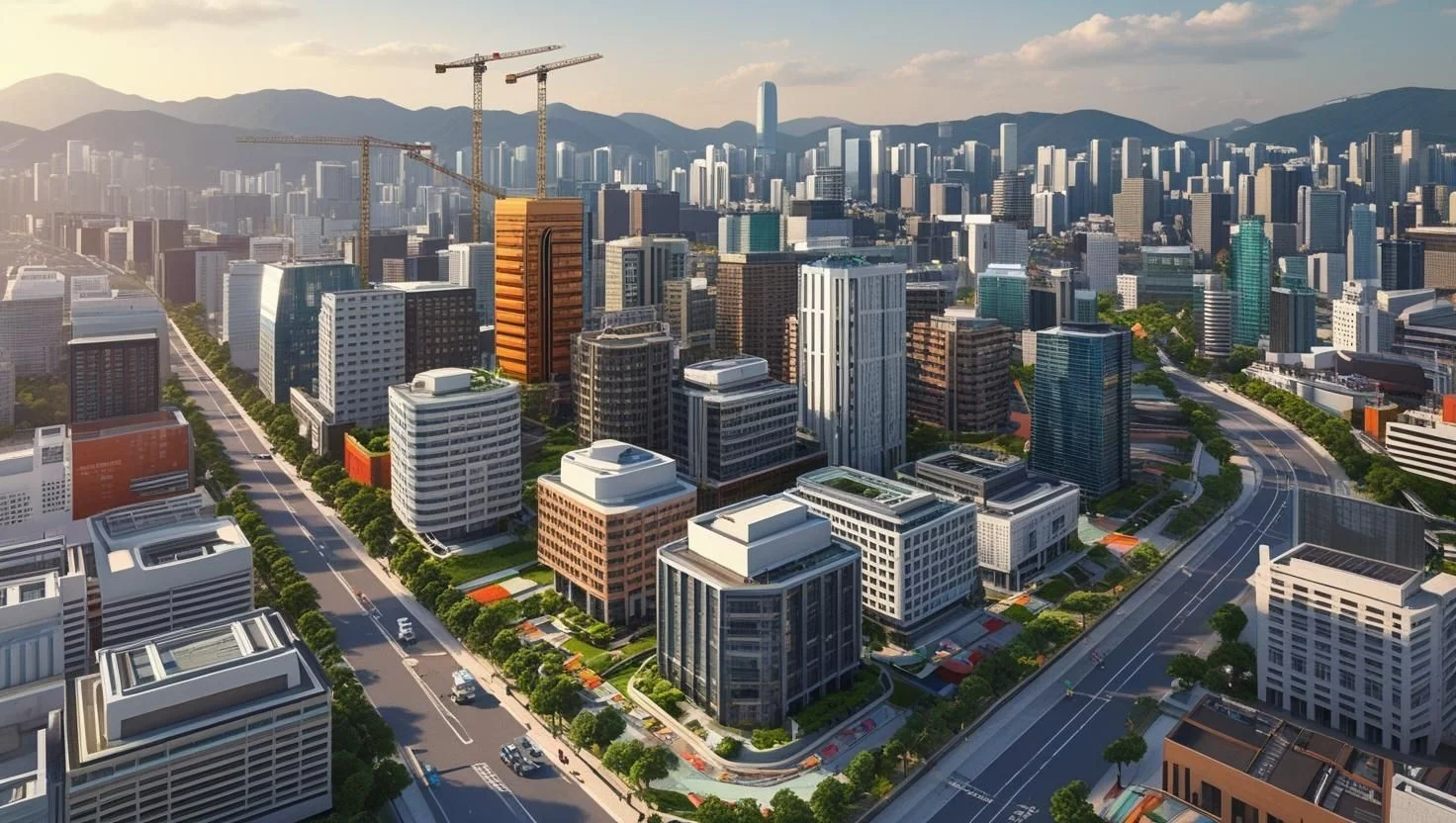South Korea Real Estate 2025: Foreign Ownership, Market Trends & Top Cities
120
9/16/2025

✅ Can Foreigners Buy Property in South Korea?
Yes — foreigners can purchase real estate in South Korea, but must comply with registration and government reporting requirements. Restrictions exist for certain property types and locations.
-
Foreign buyers need to register property ownership with local authorities within 60 days of purchase.
-
Agricultural land purchases require government approval and are generally restricted.
⚖️ Foreign Ownership Laws
-
No general restrictions on foreigners buying residential or commercial property
-
Agricultural and forest lands are restricted and require special permits
-
Ownership rights are protected once property is registered
-
Buyers must report purchases to the Ministry of Land, Infrastructure and Transport (MOLIT)
🏙️ Top Cities & Regions to Invest
🔹 1. Seoul
-
Capital and largest city
-
High demand for apartments and commercial space
-
Strong rental market and capital appreciation
🔹 2. Busan
-
Major port city with growing real estate sector
-
Attractive coastal properties and commercial investments
🔹 3. Incheon
-
Gateway city near Seoul with airport and logistics hubs
-
New developments and industrial real estate growth
🔹 4. Daegu
- Industrial and cultural city with affordable housing options
🔹 5. Jeju Island
- Tourist destination with luxury resort properties and vacation homes
💰 Property Prices in 2025
| Location | Avg. Price (KRW/sqm) | Approx. €/sqm |
|---|---|---|
| Seoul | ₩12,000,000–25,000,000 | €8,700–€18,200 |
| Busan | ₩6,000,000–12,000,000 | €4,300–€8,700 |
| Incheon | ₩5,000,000–10,000,000 | €3,600–€7,300 |
| Daegu | ₩4,000,000–8,000,000 | €2,900–€5,800 |
| Jeju | ₩7,000,000–15,000,000 | €5,100–€11,000 |
📈 Rental Yields & ROI
| Location | Long-Term Yield | Short-Term Rental ROI |
|---|---|---|
| Seoul | 3.5–5% | 5–7% |
| Busan | 4–6% | 6–8% |
| Incheon | 4–5.5% | 5.5–7.5% |
| Daegu | 4.5–6% | 6–8% |
| Jeju | 5–7% | 7–10% |
🛠️ Buying Process for Foreigners
-
Obtain a Korean Tax Identification Number
-
Find property and negotiate purchase price
-
Conduct legal due diligence with a local lawyer
-
Sign contract and pay deposit
-
Complete sale with a public notary or legal representative
-
Register property ownership with local registry within 60 days
-
Pay applicable taxes and fees
🧾 Taxes & Fees
| Tax/Cost | Rate/Details |
|---|---|
| Acquisition Tax | 1%–3.5% depending on property type and price |
| Registration Tax | 0.2%–0.4% of property value |
| Capital Gains Tax | 6%–45% progressive based on holding period |
| Property Tax | 0.15%–4% annually based on assessed value |
| Rental Income Tax | Progressive rates up to 45% |
🛂 Residency & Visas
-
Property ownership does not grant residency or citizenship
-
Residency visas require separate immigration applications
-
Investment in property is not a direct path to visa or residency status
🏘️ Who Should Invest in South Korea?
✅ Ideal for:
-
Investors interested in dynamic urban markets like Seoul and Busan
-
Buyers seeking long-term capital appreciation
-
Those comfortable with regulatory reporting and tax compliance
❌ Not ideal for:
-
Buyers expecting residency through property ownership
-
Investors seeking agricultural land without special permits
🔮 2025 Market Trends
-
Seoul real estate remains competitive with limited supply
-
Growth in coastal and resort properties on Jeju Island
-
Increasing demand for sustainable and smart buildings
-
Government measures to control speculative buying and stabilize prices
🧭 Final Thoughts
South Korea offers secure property rights for foreigners with moderate market entry barriers. Thorough legal and tax guidance ensures smooth transactions.
Are there any questions or do you need advice?
Leave a request
Our expert will contact you to discuss tasks, choose solutions and be in touch at each stage of the transaction.
